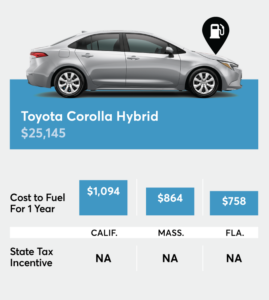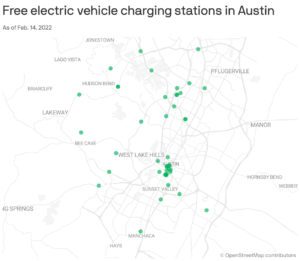How to Evaluate a Used Car Sold Through a Private Seller
3 min read Most of the time, when you think of purchasing a used car, you automatically turned to the Used Car sales team at your local dealership. However, more and more people are turning toward private sellers because they don’t have to worry about the dealer’s “cut”. Cars sold through private sellers are almost always cheaper than those sold at a dealership and you don’t have to worry about high-pressure sales tactics (for the most part). However, you have to be careful when evaluating a used car sold through a private seller because you can’t guarantee where the car has been or what damage it has sustained.
Most of the time, when you think of purchasing a used car, you automatically turned to the Used Car sales team at your local dealership. However, more and more people are turning toward private sellers because they don’t have to worry about the dealer’s “cut”. Cars sold through private sellers are almost always cheaper than those sold at a dealership and you don’t have to worry about high-pressure sales tactics (for the most part). However, you have to be careful when evaluating a used car sold through a private seller because you can’t guarantee where the car has been or what damage it has sustained.
Following are six tips for evaluating a used car when you buy from a private seller.
Ask About the Car’s Previous Owners. I prefer to purchase a used car when it has only had one or two previous owners. This cuts down on the possibility that the car was abused or that it suffered damage that isn’t reported on the title or by the seller. Sometimes, it’s impossible to verify the number of previous owners, but it’s always a good idea to ask. If the car has had more than two previous owners, you might want to consider taking a pass.
Request All Maintenance Records. When I purchased a used car from a private seller in college, I was shocked to find that he had a binder filled with every maintenance record he had for the car. Oil changes, tire rotations, safety inspections and even car parts purchased at the store were listed in chronological order with the original receipts. This made me feel better about purchasing his used car because I knew that he had kept spotless records. If a private seller has such records, you can be safer in assuming that the car has been well maintained.
Insist the Car be Inspected. Before you hand over cash to a private seller, insist that your mechanic look the vehicle over. A private seller who balks at this suggestion is a major red flag. Even though you have to pay for this inspection, it shouldn’t cost you more than $200 and you’ll feel better knowing that the car won’t break down five miles down the road. TIP: Don’t accept the story that the private seller has recently had the vehicle inspected or tuned up, even if he provides a receipt. Likewise, choose your own mechanic rather than trusting his.
Look for Signs of Cosmetic Damage. If a used car has several dings, scrapes, dents and other cosmetic damage, it might be an indication of mechanical or body damage. Again, have your mechanic inspect it and ask for the way the damage occurred. If the private seller doesn’t know or refuses to reply, look somewhere else. It isn’t worth it to purchase a used car when you don’t know about possible damage.
Obtain a CarFax Report. Although this isn’t a fool-proof way to ascertain a used car’s entire history, it will certainly turn up any major damage that’s occurred. CarFax.com allows you to search by the vehicle’s VIN number for possible damage, including: flooded cars, lemons, salvaged cars, rebuilt vehicles, major accidents, fleet cars, fraudulent odometers and others. You can get unlimited vehicle history reports for $24.95 or a single vehicle history report for $19.95.
Test Drive the Vehicle. Never write a check for a used car to a private seller unless you have taken the vehicle on a thorough test drive. If possible, drive on the highway as well as on surface streets and check for any strange lights. Make sure that the headlights, the turn signals, the emergency break, the seat belts, the hazard lights and the gear shift are all in working order.
Buying a used car through a private seller can be a more enjoyable experience than buying from a used car lot, but be aware of the risks and respond to them accordingly.



